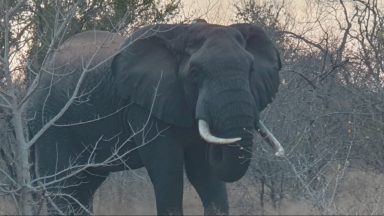Peace Parks Foundation knows just how vital insect populations are to healthy ecosystems. As important as every elephant, lion or rhino is every beetle, cricket or ant. These and other insects provide incredibly useful services to humankind and the environment. They keep pest insects in check as well as assist with the decomposing of dead animals and plants that would otherwise accumulate in the environment. They also cycle nutrients, disperse seeds, maintain soil structure and fertility and provide a major food source for other animals.
All-important to human food production, insects are critical for pollinating many of our fruits, flowers, and vegetables. Bees are some of the most important pollinators in the ecosystem, but many other insects do the job too.
The relationship between a fig wasp and local fig tree is a fascinating example of the co-dependence of species in an ecosystem. A fig wasp flies as far as 6 miles to find a tree with flowering figs in which to lay its eggs. As the larvae grow they emit carbon dioxide which nourishes the fig, and in turn the fig protects the growing wasps. The fig tree benefits from this situation because, like most plants, their fruit ripens only after its flowers are pollinated with a grain of pollen from another tree. It is the fig wasp that brings the pollen. Incredibly, this specific pollination only occurs between these particular species which makes this relationship even more amazing.
Fig trees support the diets of hundreds of other species of mammals, insects and birds, so the extinction of fig wasps would be catastrophic to those other life forms.
In short, insects create the biological foundation for all terrestrial ecosystems as well as playing a vital ecological role in the impact on agriculture, human health, and natural resources. Peace Parks strives to rejuvenate biodiversity at every level. Every species matters, no matter how small, as they each have a unique role in sustaining the ecosystems that Peace Parks and partners strive to protect.

